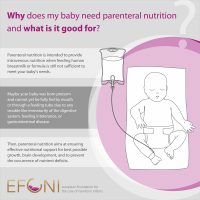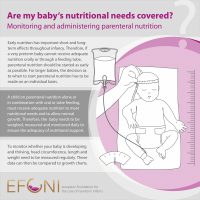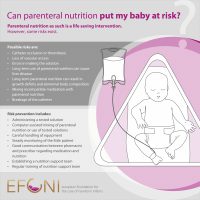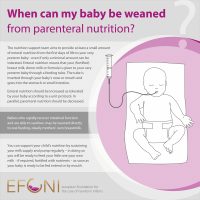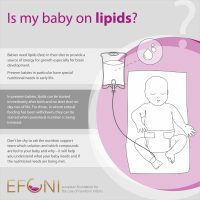“Addressing the nutritional emergency of preterm birth – Optimal practice in neonatal parenteral nutrition” - Launch 2019
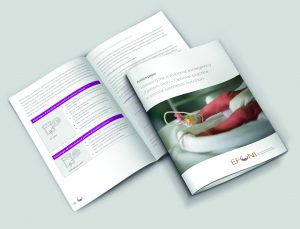
Roundtable and position paper
Several experts from various countries came together for the international EFCNI roundtable on parenteral nutrition in Munich on the 4th of July 2018. During this roundtable, the content of the position paper “Addressing the nutritional emergency of preterm birth – Optimal practice in neonatal parenteral nutrition” was developed highlighting the importance of parenteral nutrition as a life-saving treatment for very preterm and ill babies. Based on this fruitful discussion and constructive exchange of views and ideas, the position paper was developed by EFCNI together with an expert panel and got launched in Maastricht during the jENS congress in autumn 2019. The position paper is intended to serve as a supplement to, and a driving force for the development and implementation of guidelines on a national level based on the newly revised European ESPGHAN/ESPEN/ESPR/CSPEN guidelines (see also our social media series below). It primarily targets policymakers and hospital administrators but can also be used as a tool by parent representatives and healthcare professionals to convince decision-making bodies to support the delivery of appropriate, high-quality parenteral nutrition.
Promotion and launch events 2019

Professor Nadja Haiden
Interview with Professor Nadja Haiden
Professor Nadja Haiden, MD. MSc. is head of the Neonatal Nutrition Research Team of the Medical University of Vienna, Austria.
In this interview she explains:
- The process of parenteral feeding
- Its benefits and possible challanges
- How to include parents in the feeding process

